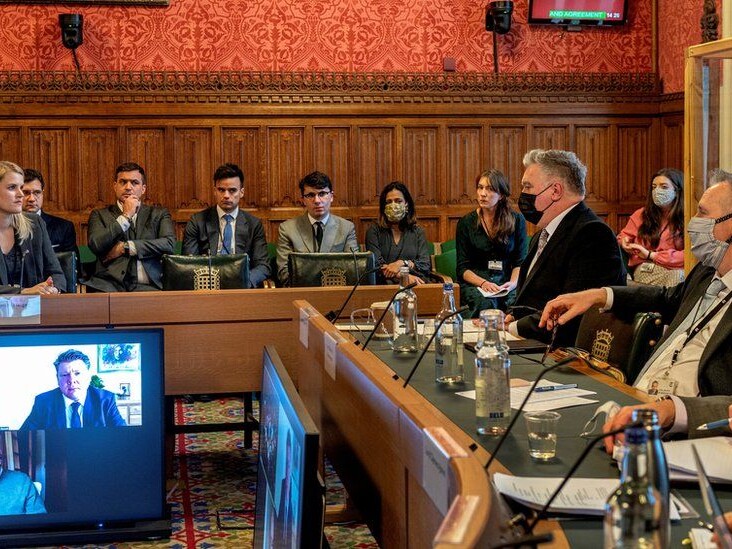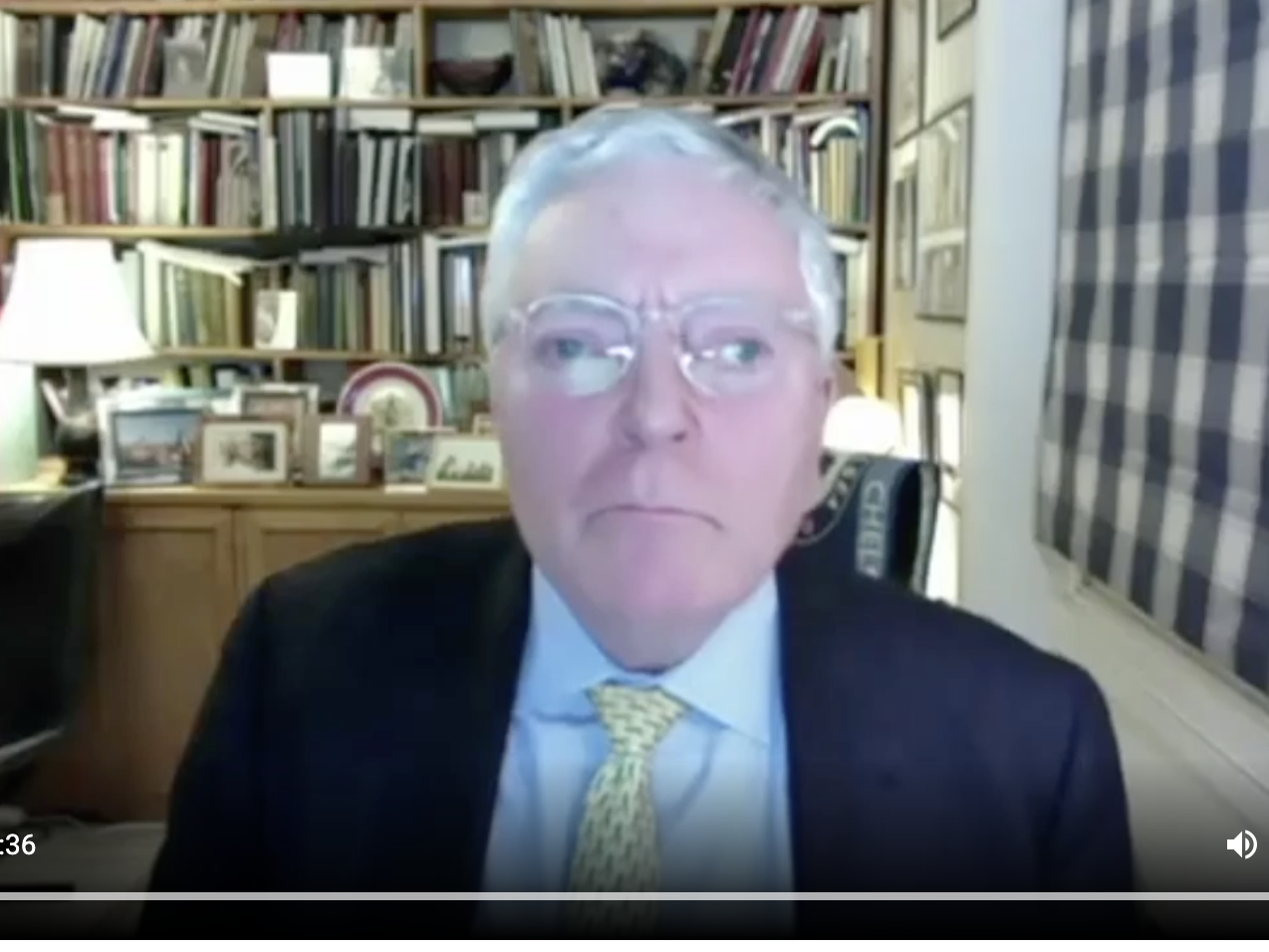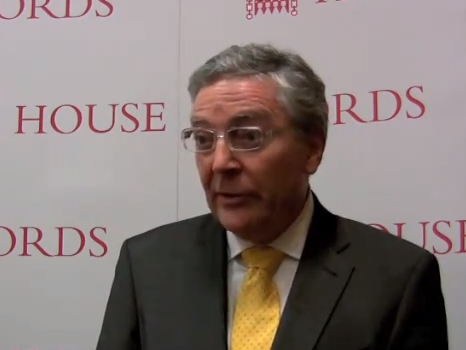Finally the Online Safety Bill has arrived in the House of Lords. This is what I said on winding up at the end of the debate which had 66 speakers in total, many of them making passionate and moving speeches. We all want to see this go through, in particular to ensure that children and vulnerable adults are properly protected on social media, but there are still changes we want to see before it comes into law.
My Lords, I thank the Minister for his detailed introduction and his considerable engagement on the Bill to date. This has been a comprehensive, heartfelt and moving debate, with a great deal of cross-party agreement about how we must regulate social media going forward. With 66 speakers, however, I sadly will not be able to mention many significant contributors by name.
It has been a long and winding road to get to this point, as noble Lords have pointed out. As the Minister pointed out, along with a number of other noble Lords today, I sat on the Joint Committee which reported as far back as December 2021. I share the disappointment of many that we are not further along with the Bill. It is still a huge matter of regret that the Government chose not to implement Part 3 of the DEA in 2019. Not only, as mentioned by many, have we had a cavalcade of five Culture Secretaries, we have diverged a long way from the 2019 White Paper with its concept of the overarching duty of care. I share the regret that the Government have chosen to inflict last-minute radical surgery on the Bill to satisfy the, in my view, unjustified concerns of a very small number in their own party.
Ian Russell—I pay tribute to him, like other noble Lords—and the Samaritans are right that this is a major watering down of the Bill. Mr Russell showed us just this week how Molly had received thousands and thousands of posts, driven at her by the tech firms’ algorithms, which were harmful but would still be classed as legal. The noble Lord, Lord Russell, graphically described some of that material. As he said, if the regulator does not have powers around that content, there will be more tragedies like Molly’s.
The case for proper regulation of harms on social media was made eloquently to us in the Joint Committee by Ian and by witnesses such Edleen John of the FA and Frances Haugen, the Facebook whistleblower. The introduction to our report makes it clear that the key issue is the business model of the platforms, as described by the noble Lords, Lord Knight and Lord Mitchell, and the behaviour of their algorithms, which personalise and can amplify harmful content. A long line of reports by Select Committees and all-party groups have rightly concluded that regulation is absolutely necessary given the failure of the platforms even today to address these systemic issues. I am afraid I do not agree with the noble Baroness, Lady Bennett; being a digital native is absolutely no protection—if indeed there is such a thing as a digital native.
We will be examining the Bill and amendments proposed to it in a cross-party spirit of constructive criticism on these Benches. I hope the Government will respond likewise. The tests we will apply include: effective protections for children and vulnerable adults; transparency of systems and power for Ofcom to get to grips with the algorithms underlying them; that regulation is practical and privacy protecting; that online behaviour is treated on all fours with offline; and that there is a limitation of powers of the Secretary of State. We recognise the theme which has come through very strongly today: the importance of media literacy.
Given that there is, as a result of the changes to the Bill, increased emphasis on illegal content, we welcome the new offences, recommended in the main by the Law Commission, such as hate and communication crimes. We welcome Zach’s law, against sending flashing images or “epilepsy trolling”, as it is called, campaigned for by the Epilepsy Society, which is now in Clause 164 of the Bill. We welcome too the proposal to make an offence of encouraging self-harm. I hope that more is to come along the lines requested by my noble friend Lady Parminter.
There are many other forms of behaviour which are not and will not be illegal, and which may, according to terms of service, be entirely legal, but are in fact harmful. The terms of service of a platform acquire great importance as a result of these changes. Without “legal but harmful” regulation, platforms’ terms of service may not reflect the risks to adults on that service, and I was delighted to hear what the noble Baroness, Lady Stowell, had to say on this. That is why there must be a duty on platforms to undertake and publish risk and impact assessments on the outcomes of their terms of service and the use of their user empowerment tools, so that Ofcom can clearly evaluate the impact of their design and insist on changes or adherence to terms of service, issue revised codes or argue for more powers as necessary, for all the reasons set out by the noble Baroness, Lady Gohir, and my noble friend Lady Parminter.
The provisions around user empowerment tools have now become of the utmost importance as a result of these changes. However, as Carnegie, the Antisemitism Policy Trust, and many noble Lords today have said, these should be on by default to protect those suffering from poor mental health or who might lack faculty to turn them on.
Time is short today, so I can give only a snapshot of where else we on these Benches—and those on others, I hope—will be focusing in Committee. The current wording around “content of democratic importance” and “journalistic content” creates a lack of clarity for moderation processes. As recommended by the Joint Committee, these definitions should be replaced with a single statutory requirement to protect content where there are reasonable grounds to believe it will be in the public interest, as supported by the Equality and Human Rights Commission.
There has been a considerable amount of focus on children today, and there are a number of amendments that have clearly gained a huge amount of support around the House, and from the Children’s Charities’ Coalition on Internet Safety. They were so well articulated by the noble Baroness, Lady Kidron. I will not adumbrate them, but they include that children’s harms should be specified in the Bill, that we should include reference to the UN convention, and that there should be provisions to prevent online grooming. Particularly in the light of what we heard this week, we absolutely support those campaigning to ensure that the Bill provides for coroners to have access to children’s social media accounts after their deaths. We want to see Minister Scully’s promise to look at this translate into a firm government amendment.
We also need to expressly future-proof the Bill. It is not at all clear whether the Bill will be adequate to regulate and keep safe children in the metaverse. One has only to read the recent Institution of Engineering and Technology report, Safeguarding the Metaverse, and the report of the online CSA covert intelligence team, to realise that it is a real problem. We really need to make sure that we get the Bill right from this point of view.
As far as pornography is concerned, if we needed any more convincing of the issues surrounding children’s access to pornography, the recent research by the Children’s Commissioner, mentioned by several noble Lords, is the absolute clincher. It underlines the importance of the concerns of the coalition of charities, the noble Lord, Lord Bethell, and many other speakers today, who believe that the Online Safety Bill does not go far enough to prevent children accessing harmful pornographic content. We look forward to debating those amendments when they are put forward by the noble Lord, Lord Bethell.
We need to move swiftly on Part 5 in particular. The call to have a clear time limit to bring it in within six months of the Bill becoming law is an absolutely reasonable and essential demand.
We need to enshrine age-assurance principles in the Bill. The Minister is very well aware of issues relating to the Secretary of State’s powers. They have been mentioned by a number of noble Lords, and we need to get them right. Some can be mitigated by further and better parliamentary scrutiny, but many should simply be omitted from the Bill.
As has been mentioned by a number of noble Lords, there is huge regret around media literacy. We need to ensure that there is a whole-of-government approach to media literacy, with specific objectives set for not only Ofcom but the Government itself. I am sure that the noble Lord, Lord Stevenson, will be talking about an independent ombudsman.
End-to-end encryption has also come up; of course, that needs protecting. Clause 110 on the requirement by Ofcom to use accredited technology could lead to a requirement for continual surveillance. We need to correct that as well.
There is a lot in the Bill. We need to debate and tackle the issue of misinformation in due course, but this may not be the Bill for it. There are issues around what we know about the solutions to misinformation and disinformation and the operation of algorithmic amplification.
The code for violence against women and girls has been mentioned. I look forward to debating that and making sure that Ofcom has the power and the duty to produce a code which will protect women and girls against that kind of abuse online. We will no doubt consider criminal sanctions against senior managers as well. A Joint Committee, modelled on the Joint Committee on Human Rights, to ensure that the Bill is future-proofed along the lines that the noble Lords, Lord Inglewood and Lord Balfe, talked about is highly desirable.
The Minister was very clear in his opening remarks about what amendments he intends to table in Committee. I hope that he has others under consideration and that he will be in listening mode with regard to the changes that the House has said it wants to see today. Subject to getting the Bill in the right shape, these Benches are very keen to see early implementation of its provisions.
I hope that the Ofcom implementation road map will be revised, and that the Minister can say something about that. It is clearly the desire of noble Lords all around the House to improve the Bill, but we also want to see it safely through the House so that the long-delayed implementation can start.
This Bill is almost certainly not going to be the last word on the subject, as the noble Baroness, Lady Merron, very clearly said at the beginning of this debate, but it is a vital start. I am glad to say that today we have started in a very effective way.
5th April 2021
Lord C-J : Give Musicians the Freedom to Tour
28th February 2015
Reduce The Maximum Stake on FOBTs
30th December 2013






